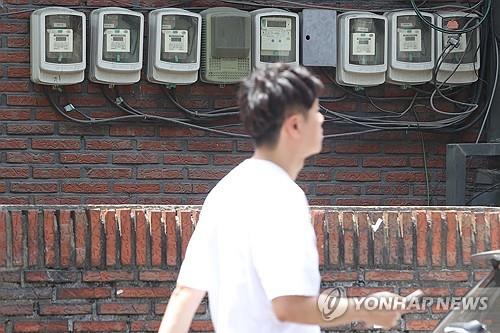- California Assembly OKs highest minimum wage in nation
- S. Korea unveils first graphic cigarette warnings
- US joins with South Korea, Japan in bid to deter North Korea
- LPGA golfer Chun In-gee finally back in action
- S. Korea won’t be top seed in final World Cup qualification round
- US men’s soccer misses 2nd straight Olympics
- US back on track in qualifying with 4-0 win over Guatemala
- High-intensity workout injuries spawn cottage industry
- CDC expands range of Zika mosquitoes into parts of Northeast
- Who knew? ‘The Walking Dead’ is helping families connect
KEPCO to freeze Q3 electricity rates amid inflationary pressure
The state power utility will freeze the third-quarter electricity rates for a high demand season amid inflationary pressure, officials said Friday.
Korea Electric Power Corp. (KEPCO) said it will keep the adjusted unit fuel cost — a key part of the country’s electricity rates — unchanged at 5 won (US$0.003) per kilowatt hour for the July-September period.
KEPCO has frozen the quarterly rates since the first quarter of 2024 after raising them three times in 2023 amid mounting losses.
KEPCO suffered combined operating losses of around 43 trillion won as it was not able to hike rates enough to cover high fuel costs amid the COVID-19 pandemic and inflation, though global energy prices had soared amid the Russia-Ukraine war and other factors.
But it has decided to maintain the rates unchanged for the third quarter as global energy prices have somewhat stabilized and a hike could add burden on the people during the summer high-demand season already suffering from high inflation, officials said.
Consumer prices, a key gauge of inflation, stayed below 3 percent for the second consecutive month in May to stand at 2.7 percent, but the government has said that prices are forecast to ease at a slower pace than earlier expected.
As for prices of gas used for cooking and heating, the government is expected to raise them, with the decision to be announced next month.
KEPCO reported net income of 595.9 billion won in the first quarter, shifting from a loss of 4.91 trillion won a year earlier, on lower global energy prices.












